Big Doers in the Big Apple

Being a minority in a hodgepodge of cultures can be daunting. Especially if you are an immigrant who is not equipped with the capacity to acclimate to the change of environment. Bangladeshi women are such marginalized subgroup within the Bangladeshi diaspora of New York. They don’t evoke much thought or conversation within their surroundings, and wind up getting the short end of the stick of immigration. Perhaps it’s because their voices have never been heard. Perhaps it’s because nobody has facilitated them by holding a megaphone next to their mouth and allowing them to speak. Dream is a concept of the wealthy and the west. While many may agree, these young Bengalis are here to differ. Many Bangladeshis have ventured into the melting pot of culture that is New York, with the conviction of fulfilling their dreams. While some succeed and some fail, some aspire to let the voices of these women in silent distress be heard. Nusrat Noshin brings you a cohort of three such Bangladeshi acts.
Jhal NYC
Jhal NYC has taken it upon themselves to help these Bangladeshi domestic, often solitary women, by creating a space for them right in the heart of the globe, while also enabling them to practice something they have an innate affinity with. Bengali food. Jhal NYC employs stay-at home-mothers and new immigrants and prepares them for paths they seek to transition to, thus creating a community for these marginalized groups.
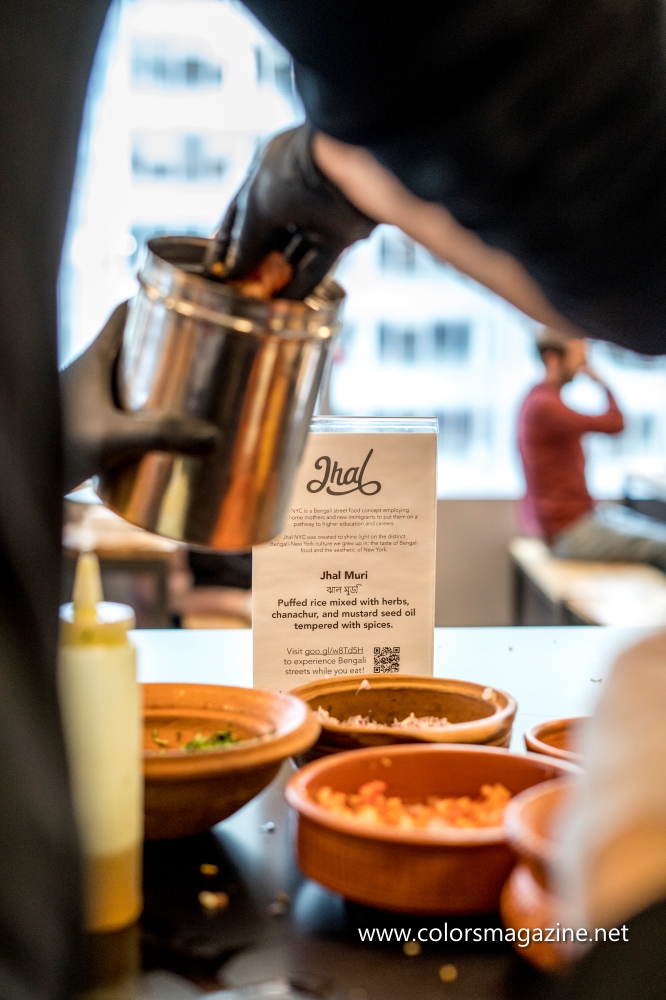
Jhal NYC Creative Director imparts what Jhal actually is about. Contradictory to its name, Jhal NYC is not only about food. “Jhal is a social venture that empowers its vision through food. The vision in our case is empowering the Bengali Diaspora, employing Bengali immigrants and moms, and just supporting all types of arts all around. Jhal has offered many classes to help aid the moms. We did a collaboration with Biny’s Kitchen (a self-taught home cook who specializes in halal food), where the Moms taught Biny how to make staple Bengali snacks and desserts. In return, Biny taught the moms how to make Mushroom Gravy Smothered Chicken. And at the end of class, everyone who attended taught the moms smartphone literacy and navigating Google Maps. Jhal also has an upcoming program with ‘Malikah’ to offer 10 classes teaching the moms Self Defense.” He continues with a quirky story of how he joined the Jhal team. A series of last minute meeting and well-timed texts led Miraz to be a part of this NYC-based, Bangladehi startup. “I saw Jhal had an event at Eatscon on Instagram and judging from the buzz around it, I texted them asking if they needed a photographer for their event. Their initial answer was no. Later, on the day of Eatscon, I got this out of the blue text from Mahfuzul Islam (Co-Founder & CEO), asking if the photography gig at Eatscon still enthused me. You can tell what that ended up like.” He indicates with a chuckle.
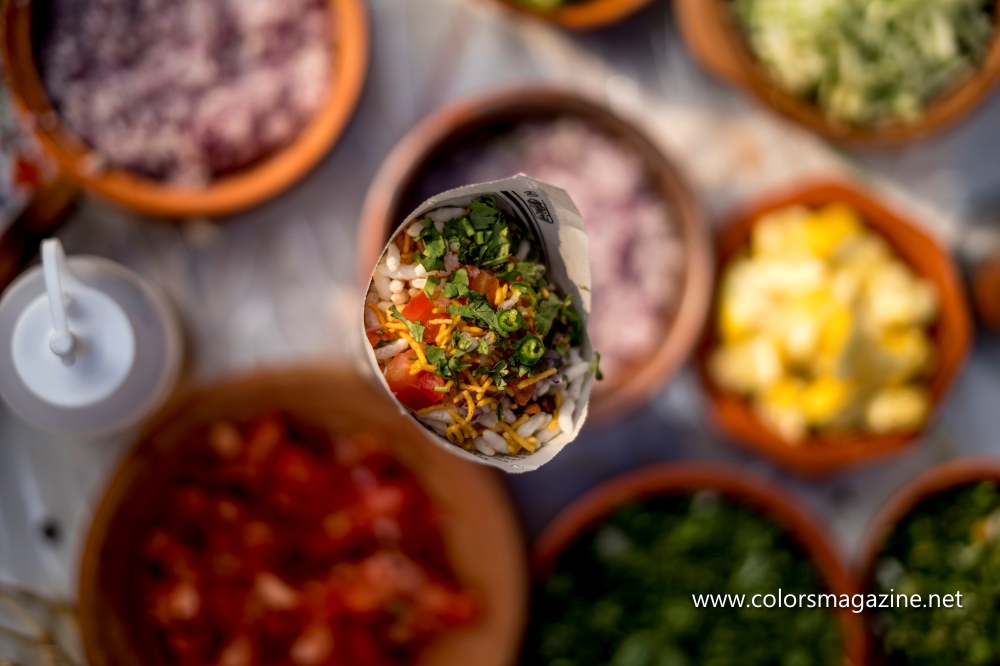
Miraz then proceeds to discuss their future plans. “Jhal has a lot that we want to do in the future. We want to be able to expand, open community centers, give people a platform, and just keep empowering Bengalis. The Bangladeshi diaspora and locals alike, including non-Bengali New Yorkers, have shown great interest at our events. How can they not? Who doesn’t love Fuchka and Jhal Muri?” He humorously exclaims. Continuing on that notion, he says. “We want to disrupt cuisine in general with Bengali food. Our ancestors came here and set up “Indian Restaurants” as a form of survival scheme. With Bengali Cuisine, we want to show that our previous generations have done enough. No more need for survival. It’s time to come out from the shadows and show that we’ve been here from the start; Bangladeshis have been here from the start. And that’s through the Bengali Food we eat on a regular basis such as Jhal Muri, Fuchka, Shemai and such. On top of that, we want to differentiate ourselves. Not a lot of people know who or what a Bangladeshi is. They presume we’re Indians. There’s so much history that we want to teach through the foods we’ve been eating as kids.”
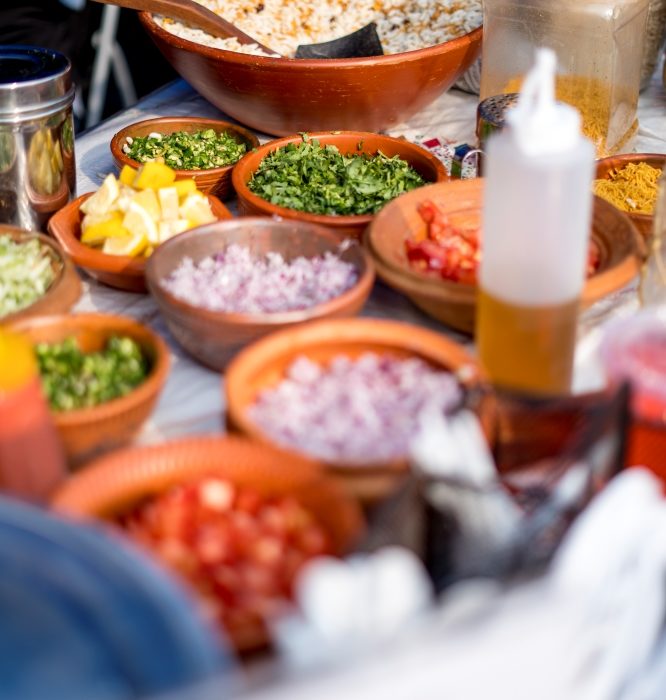
He lastly talks about exciting projects Jhal NYC has undertaken that we should look out for. “We have an upcoming short film called ‘Dawat’ coming out soon. The story follows a Bengali woman on her journey of getting accepted to an elite school, far from home. Her parents are naturally not entertaining that idea. The point of the story is to juxtapose the disparate Bengali Culture and American Culture, shedding light on the dilemma and rift within a woman born and raised in an immigrant family.”
LAAL NYC
LAAL NYC Co-Founders Ayesha Akhter and Sanjana Khan are Bronx locals. Ayesha moved to New York as a child after her father won a lottery in the 90s, while Sanjana was born and raised here. “I lived on the west coast for 8 years in Olympia, San Francisco and Portland and moved back to New York four years ago. I moved back after the incident where a Bangladeshi women was convicted of 3rd degree murder, after she threw her new born out of a Queens apartment into the building’s courtyard. This was the first national coverage in the New York Times about the mental health epidemic and isolation that Bangladeshi women faced in the USA. This was my call to move back and work directly with my community.” Sanjana says. Even though both the partners are native Sylheti, grew up just a block apart in the Bronx and attended the same elementary school for a while, they had only met on August 2018.
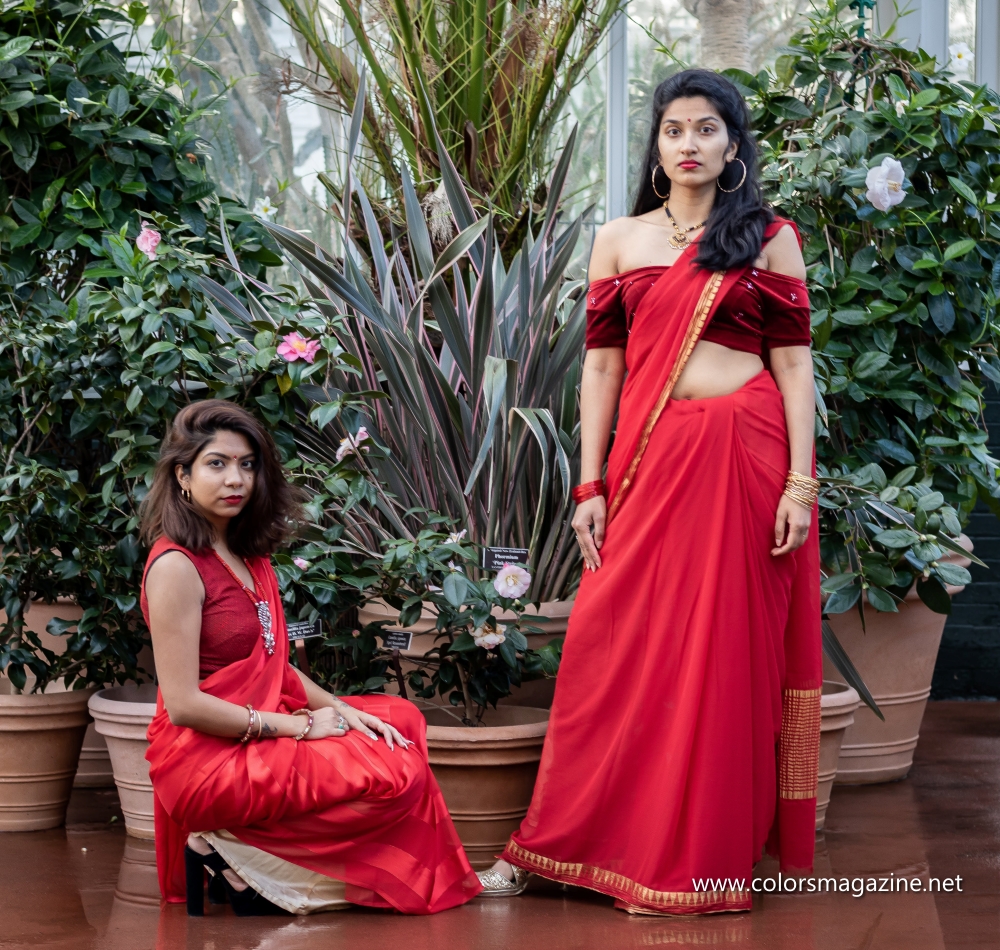
When asked about the concept of LAAL, Sanjana says. “LAAL is a Community Based Organization, a 501(c)3 creating resources and programs for Bangladeshi women to live healthy, engaged, joyful lives. Culturally and traditionally we have not given women a seat at the table from all issues pertaining to politics, religion and familial decisions. At LAAL we want to break that cycle. We want to provide the resources necessary for women to find their own joy, something that is unknown to many women. We cannot empower them, but they can empower themselves, and we can only expedite that process. That is what LAAL is, an organization, a movement for holistic change for our women, our society, and our future generations.” Ayesha further adds. “LAAL serves women in the Norwood section of the Bronx. I grew up in the very neighborhood Laal serves. I have watched my mother, aunts, neighbors struggle to acclimate to life in America. Now, 30 years later the Bengali population has skyrocketed yet there are still no services for this community.”
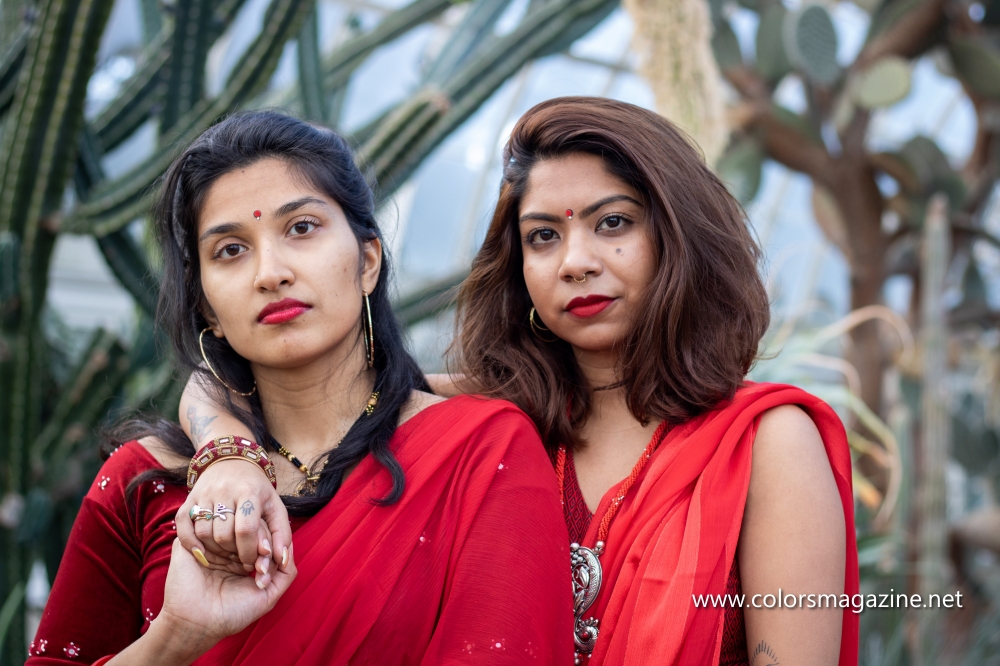
Ayesha describes their fateful meeting. “I worked at the Bronx Museum of the Arts as the Community Programs and Marketing Manager. I met Sanjana at a summer party that the Bronx Museum was co-hosting. It was on a perfect September evening; we were both wearing shades of red. I had on a bright red dress and Sanjana donned a maroon jumpsuit. We were introduced by a mutual friend, and we actually started talking about a non-profit dedicated to Bengali women that very night. Sanjana was out scouting for a perfect partner. Because of my experience in the nonprofit world, dedication to my homes – The Bronx and Bangladesh, her (Sanjana) experience with women across the country, we became a dream team! The rest is history. Two months later we made LAAL NYC an official non-profit. We got the official paperwork on October 31st, Hallows eve. Magic.”
The name LAAL resonates with a myriad of emotions in women. Ayesha excellently demystifies the reason behind the name. “Red is such a powerful color, and it’s a color that has always been linked to my mother and Bengali women in general. Laal symbolizes the mark of menstruation, the Alta Bengali women use to adorn themselves, the red saree Bengali women wear on their wedding, the red bindi for which Bengali women are famous, and the red sun which is in the center of the Bangladeshi flag. We chose this as our name because it serves as a reminder of the strength and resilience of Bengali women.”
The co-founders then go on to narrate the inception of LAAL and how their real-life experiences had led them to beget this organization. Sanjana reminisces about how she was raised and her surroundings. “Growing up, I was always told to hold my tongue, to dress modestly while hosting the idea that the man I would marry would determine my worth in society. I was studying architecture in high school and saw my future in design. RISD was my dream school, but that did not work out. So, I attended The Evergreen State College, amidst 1000 acres of woods, and a six hours flight from my family. This was my escape; I majored in feminism and bathed in ideals and morals that imbued me. Justice, where the actual realities of the world were presented to me raw. I traveled to Bangladesh and worked with FIVDB when I was 19. It was here where I realized the horrific reality of Bangladeshi women; acid attack survivors, rape/sexual assault survivors, and victims, and realities of the women in my own family. I realized your socioeconomic status did not eliminate the fact, women will always be second class citizens. Violence was just a different language relying on if you lived in Gulshan-2 or a small village in Habiganj.”
She continues. “This did not change when families immigrate to the US. Here the women did not know the language, the idea of independence and freedom of movement is so alien; isolation grows. I witnessed my own mother struggle through the hardships of assimilating to American society. She learned English and she unfalteringly battled the stigma the Bangladeshi society imposed on her for being independent. Today she is a successful business owner and real estate, investor. However, it is critical to understand she came from a wealthy, prominent and educated family in Bangladesh. She struggled to morphe here in spite of that. She was extremely privileged, this is not the reality of the majority of Bangladeshi women in NYC, most of them do not have support from their husbands and have not attended school past 7th and 8th grade. This is my community, I do not see myself doing good or giving back, this is my duty. If my community doesn’t thrive, I will never thrive.”
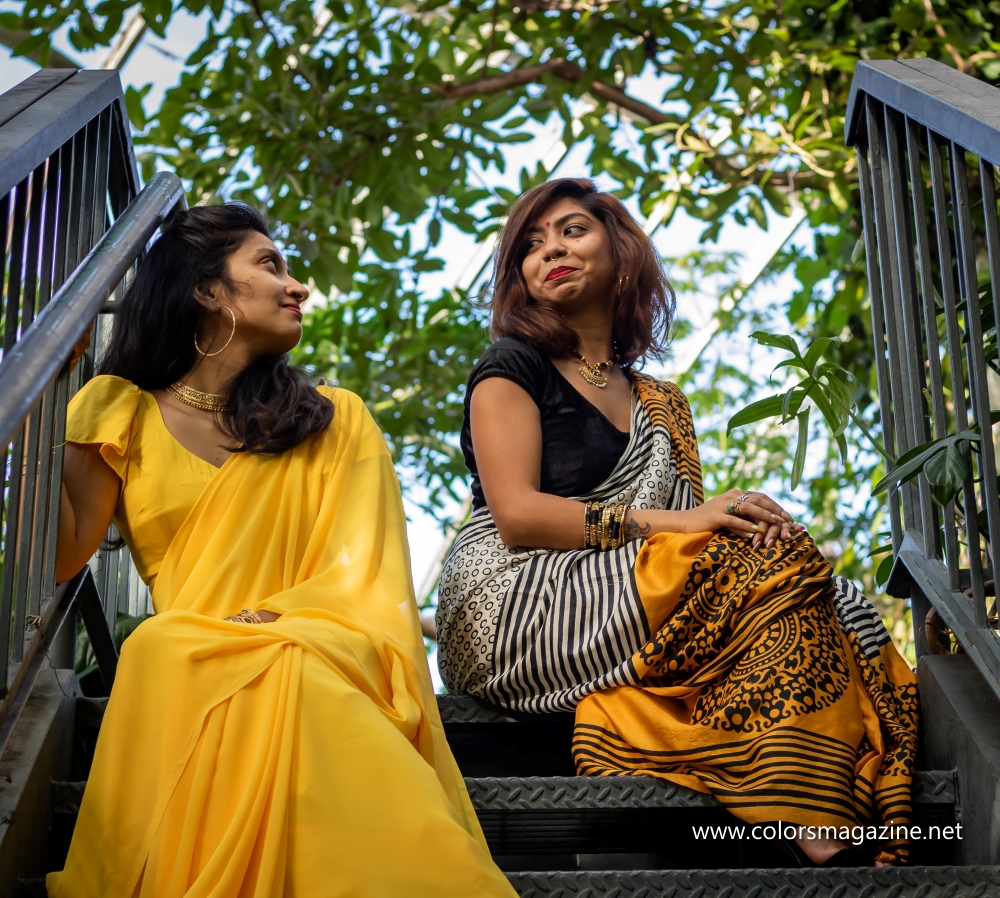
Ayesha expresses her narrative. “I grew up in a very patriarchal home and I saw how the women in my family lived. Even if they were more diligent and able, they would get dismissed. I witnessed my mom and my aunts struggle to acclimate to life in America. My mom is bi-polar and seeing her raise four children with hardly any family support was incredibly inspiring but also really hard. My mom was nervous to go outside besides the two or three places that she was familiar with. She also never felt comfortable with English. After 9/11 many of the women in the community, including my mom, experienced overt islamophobia.” Ayesha then transitions to a cheery note, and shares a bit about the operations of LAAL. “LAAL is in the process of just beginning its programs. We are almost done with our needs assessment (survey 200 women in the community) so that we can find out what they want and what their needs are. We have also been doing a lot of outreach in the community. Getting the word our there by tabling at Melas in the Bronx and Queens. We’re organizing our first fundraising event headlined by legend DJ Rekha on August 8th. In Fall 2019, Laal will start with basic ESL classes, preventative care, and educate women to use the resources like subways. Many of the women who have immigrated here even after being here for over 20 years don’t feel comfortable speaking in English or traveling by themselves.” Sanjana deconstructs the hoopla around their imminent fundraiser. “LAAL Grishmo is the first of Laal’s annual online fundraiser and summer party. Our goal is to plan to fundraise 25k to kick-start Laal’s Fall 2019 and Spring 2020 programming. This amount will go towards ESL classes, fitness and nutrition classes, transportation classes, and general operations costs, and individual case management. The line up is all South Asian women/femme comedians and DJ’s. LAAL is also changing the narrative of nonprofit galas. LAAL Grishmo is not for people with money and a black tie event but a night of radical love where we celebrate us, our movement building, our diasporas, ourselves.”
Mati
Basma Sheea, an outspoken, expressive young talent from the Bronx has charged full frontal in the indie music scene around her. With her undeniable talent, cheery personality and galvanising swag, she’s hard to forget. She not only represents her roots, but also the ramifications of her culture on women. She shares a small window of her life. “We moved to the US in 2002 and have moved around the tri-state area quite a lot. I have lived in the Brox for eleven years now. It was just me and my mother and a fresh start of a sort.” She then moves on to talk about the thing she loves – Music. “I was a very lonely immigrant kid. I felt so out of place that I sought recluse in Disney Channel. Just like any other girl of that age, I was head over heels for Lizzie Mcguire. I learnt all the songs from her first album by heart; I dreamt of living her life. I then quickly grew out of that and branched out to other artists. I noticed I admired those who weren’t afraid to share their truth through their art. I loved Kelly Clakson and Justin Timberlake growing up, but now I am all about Sia!” She exclaims enthusiastically. “I believe my biggest backer is my mom, she really pushed me to keep up singing and perform Bangla music in Bengali communities. Not having a lot of friends factored in as well, since I could not relate to any of the kids of my age, I kept my focus razor sharp on music.”
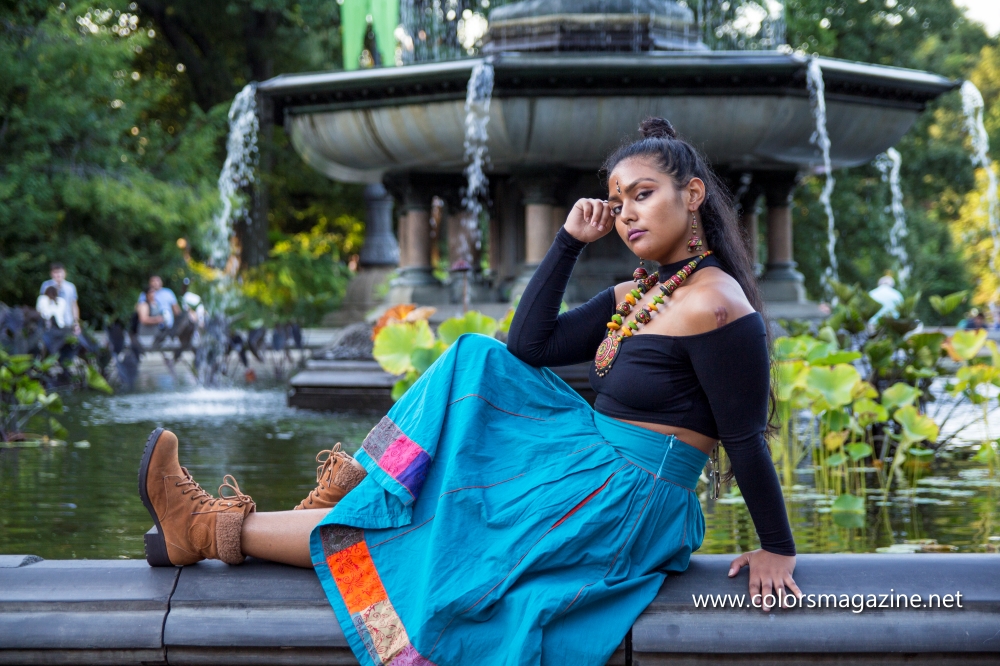
“It is funny, though, I hated my voice lessons back in Bangladesh, but now I refer back to my voice lessons from Laguardia Performing Arts High School to train my voice. I adore singing Lalon
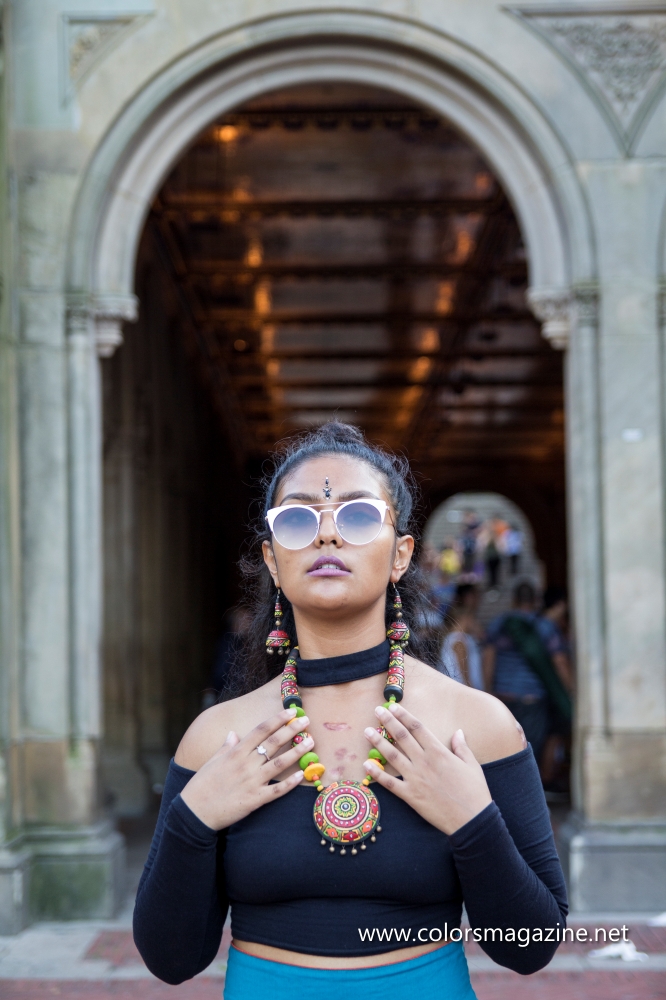
Basma touches a bit on her first performance and its outcome. “Honestly, I don’t remember my first performance; it feels like a lifetime ago. My mother arranged it for a Bengali community. I remember not feeling any hint of stage fright since I had rehearsed endlessly; I didn’t want to bungle it. The audience was very proud and that pride infiltrated me. I felt like I had accomplished a big feat by performing in Bangla in the heart of the world that is New York.” Music is often not the easiest path to choose, with so many barriers to entry and high saturation, Basma feels a tad bit of its effects. “Yes, I can be quite challenging to find new gigs. It is just hard to be a ‘somebody’ in music. However, there is always an air of ‘Wow! She’s exotic.’ or ‘How does she speak English so well?’ In the Bangladeshi community, I have been called ‘too American’ for the way I dress, talk, and carry myself. So, it’s a constant battle with my self-identity. At the end of it all, I want to look back and be able to say ‘I did all that without having to change myself.’ Through this all, I have found women who face the same struggles. It’s truly all about the sense of belonging and finding the tribe that will keep you grounded to your beliefs.”
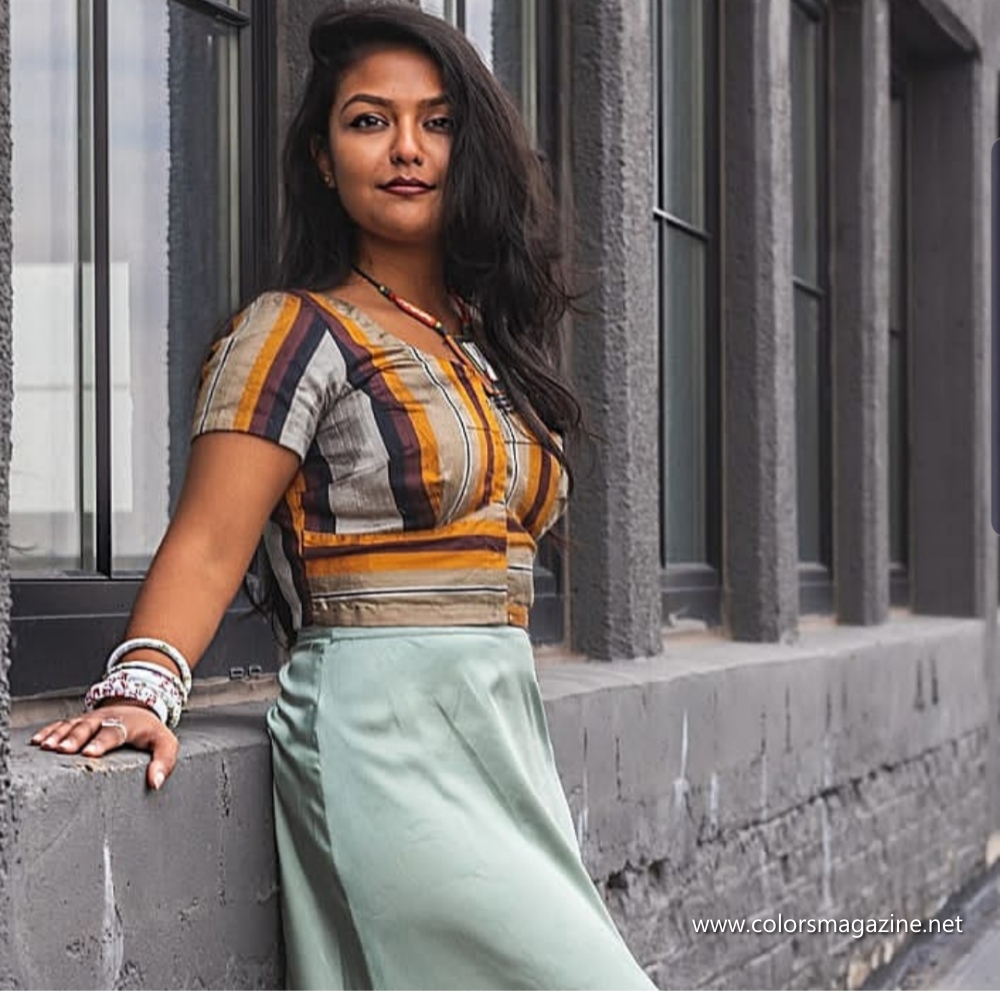
When asked about her favorite performance, she says. “It has to be the Bronx Night Market, about a 10 minutes walk from my home. It was an amazing synergy because so many friends attended, and my efforts seemed to be reciprocated by the audience. That feeling is so divine. It honestly touched my heart to see so many people down at the Bronx just enjoying themselves. It felt like home. Most of my sets are R&B but I also stick to my roots and perform folk music as much as possible. I have been told that they have an otherworldly experience when I sing folk and that is amazing to hear. I believe that is the best part about performing. You may have a bad day, you can go up in the front and perform your heart out. Bare soul. People can feel the emotions, music is like a superpower. When spectators come up to me and claim I made their day, that makes my day, and that feeling can never be taken for granted.”
She rounds things off which her plans for the future and how she represents Brown Women in a constricted community. “I see myself happy, on a sustainable path of making music my full-time job. Either by teaching or touring. I’d like to start working on a concept album for my first ep in the next year. There’s a specific genre I’d like to highlight in the album. Music is really the only thing that makes me feel close to divinity. I want to keep finding my voice and make music that not only represents Desh but also uplifts the stories of migration and of being a brown woman. Being a South Asian women in the industry, it is our responsibility to be brave and to never forget where we came from. We are a force to be reckoned and we shall forever remain that way.”



